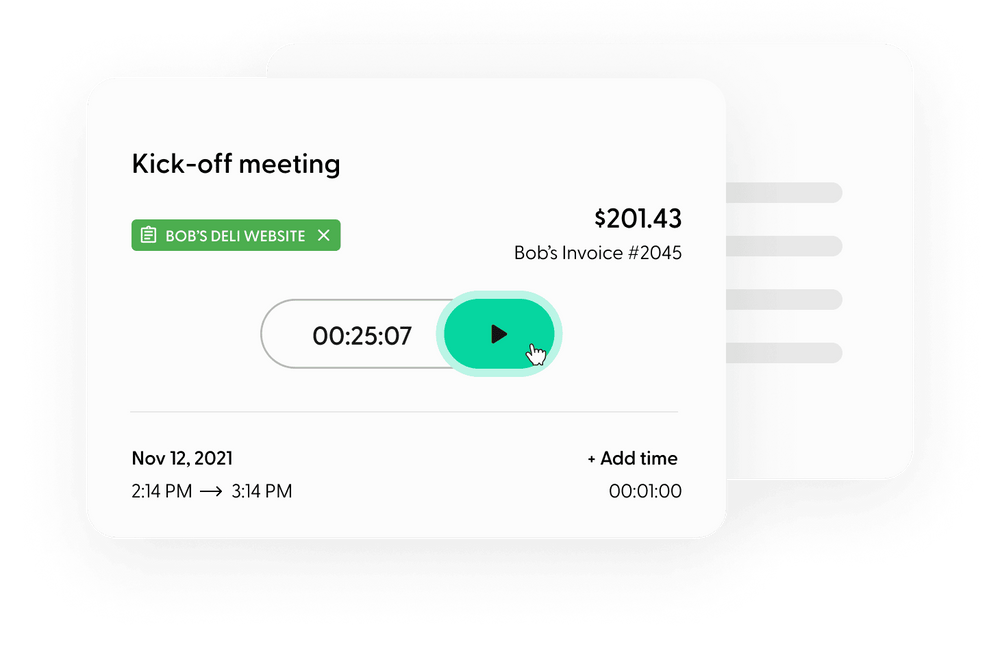That all too familiar feeling: you've been staring at the screen for half an hour, willing the work to get done, but that time has been wasted. The deadline is approaching, and you need to get this done now! Panic sets in, and the work flows even less, but still, you don't step away from the screen.
Effective time management is key to a productive working life, but what is often neglected is energy management. How much more important does this seem when research indicates that we’re only productive for around three hours a day on average?
When you manage energy effectively, time management will take care of itself. Here are a few questions to think about:
- How much energy do you have at different times of the day?
- How do you recharge your batteries when emotional energy is low?
- Do you take regular breaks, or do you plow on through like a soldier on high alert?
Read on, and you will be ready to plan your freelancing schedule based on energy as well as time.
The concept of energy management
Your personal energy levels are just that; they are based on you as a person, not how you think you are supposed to be. Do you have more energy early in the morning? Last thing at night? Is there a certain time of the week when your energy limits are reached? Aim to tackle the tasks that require the most focus and creativity at times when your energy levels are high. Save simple admin tasks for when you are drained but can process basic information.
Sometimes you will need a boost - what would give you that? Is there a particular type of food or drink that helps you feel energized, even if it's a placebo effect? Would a quick half-hour run help bring you more focus? A call to a friend who boosts your mood? Have strategies in place for how you will boost energy when you start to feel tired.
It is equally important to identify energy drains. It's rarely a good idea to start an important task when you've just had a big argument with a family member, or to try and be creative at 2 am when you're struggling to stay awake. Sometimes a deadline is a deadline, and you will just have to do your best, but try not to work on your most important tasks when negative emotions are to the fore. Be ready to give your all when it matters most.
Dr. Jim Loehr identified different types of energy that we must try to pay attention to in order to perform well. Our physical energy is seen as the quantity of our energy; it will deplete if we are tired, hungry, or over-exerted. Emotional energy is the quantity of our energy, and if we do not stay on top of it, we will not give our all to a task. Mental energy is the amount of focus we apply to our work; if we are stressed, we will be lacking in this type of energy. It is important for all of these different types of energy to be in balance if we are going to cope well with our everyday activities. There are different ways in which we can try to manage all of these.

Strategies for managing energy
There are many strategies you can use to manage energy effectively. Some common approaches include:
Prioritizing tasks based on energy levels
Your energy is a finite resource. This means that there will only be a certain amount of time each day when you can give your all to a task that needs you to fully focus. Make sure you are working on the most urgent and important tasks at a time when your energy levels are high. A more mundane task that you could pretty much do with your eyes closed can be saved for a time when energy is depleting.
Scheduling high-energy tasks during peak energy times
It is worth taking some time to work out the designated times when you have peak energy. Some people work best within a few hours of waking, while others operate most effectively in the evening. Figure out when you have the greater capacity to deal with high-energy tasks and spend time accordingly. This can be seasonal too. If you are able to schedule your most important tasks of the year for when you know you have more energy, then do so. Otherwise, just try to pay attention to when energy is at its peak each day.
Taking breaks to recharge
Let's go back to the scenario at the beginning of the article. If you can feel that your energy has depleted, you will not do your best work. Intermittent breaks can work wonders to recharge your batteries. Experiencing burnout is common in the fast pace of modern life, so managing your energy is key. Taking five minutes to refresh and refocus can lead to another hour of productive work rather than a slump you can't find your way out of.
Incorporating physical activity and self-care into daily routines
Keeping your energy up is not just about how you work. How you play is also crucial. If you have an exercise you enjoy, it can help to energize you for the day or to unwind after completing a stressful task. It's the same with any activity you enjoy. Self-care is about spending time on yourself. Recovery time is not just about resting but equally about finding time for hobbies, interests, and passions.

Reducing or eliminating energy drains
What leaves you with low energy to complete your tasks? There are several factors that can have a negative impact on energy levels; outside stresses, difficult people, and long hours can all upset your productivity. If these are factors in your life, what can you do to minimize their impact? Could you turn your phone off for a while? Could you spread your hours over more days while working fewer hours per day? What about longer hours some days to have other days off completely? Time for an audit of your working life for a positive impact on your work and well-being.
The role of sleep in energy management
Along with diet and exercise, sleep is a vital ingredient in maintaining positive energy. People tend to perform best if they are well-rested, and those who have too little sleep can be like zombies when trying to function in their day-to-day lives. As a freelancer, you can easily fall into the trap of thinking sleep is a delicacy you don't have time for. In fact, even a power nap during the day can lead to an energy boost that will help you deliver on an important task.
For good quality sleep, you need to be consistent. Try to keep to a designated time for bed and focus on winding down before you sleep. Keep electronic devices away from your bedroom, and don't eat any heavy meals within a couple of hours of going to bed. Make sure your sleeping environment is quiet, dark, and comfortable. Maybe do some light exercise an hour or two before bed. Nothing too stimulating.
Long-term sleep deprivation is linked to an increased chance of a number of health conditions you will want to avoid. There is a higher risk of hypertension, heart attacks, diabetes, and strokes in people who rarely get enough sleep. Poor sleep is also linked to a lack of concentration, depression, memory problems, mood changes, and even hallucinations. In short, poor sleep is potentially very harmful to your long-term health, so rest is a vital consideration.

The role of stress management in energy management
As a freelancer, you are perhaps more susceptible than most to burnout, which can have serious implications on both mental and physical health. You have to start managing your workload, so energy-depleting behaviors are kept to a minimum. If you are frequently pushing on when energy is low, it will only lead to unmanageable stress. You need to take more breaks and capitalize on high energy rather than thinking you need to be working all hours. Quality, not quantity.
It will have a substantial positive impact on your stress levels if you choose clients carefully and only take on the work you can realistically manage. When taking on a new client, be honest about your expectations and don't agree to something you know will be unmanageable just because you think they will be impressed.
Each week compile a to-do list to make sure the urgent and important tasks get done but don't try to fill a whole page with tasks just for the sake of it. If you always fail to complete the list, it will only be demoralizing, so make it achievable and prioritize the tasks that you know have to be done that week. Anything else you can push back to next week if you need to.
We've all heard the expression, "All work and no play" - it exists for a reason. Your time management skills do not just apply to your working week. You need to factor in time for activities that you find relaxing and enjoyable. Doing something you enjoy can give you a huge energy boost, which will benefit your work massively. Make sure you take a holiday as well, even if you don't go anywhere. Recharging your batteries will let you refocus on important tasks.
The role of time management in energy management
Time blocking is a way of adding further texture to your to-do list and allowing enough time for each task. The idea is that you divide tasks into different times of the day or days of the week to ensure that everything urgent gets done. If you focus on one task at a time rather than ten, you will know that the quality will be there as well. Managing time is about dedicating enough of your energy and focus to each important task.
When starting a task, you need to be very clear on what you are trying to achieve; this way, you can set milestones toward completing that task. When you have a list of tasks in place, you can organize them in order of priority. If you work on those with the shortest deadline first, you will not have the stress of trying to finish them at the last minute. What's more, if you are working under stress, the quality is likely to drop. Take a look at Eisenhower's Matrix as a way of organizing tasks according to priority.
You have to be realistic about your workload. Most people take on more than they can reasonably expect to complete because they don't want to seem incapable or weak. In fact, in the long term, clients will be more impressed if you complete the amount of work you can with a high level of quality than if you keep failing to meet deadlines or delivering a high volume of low-quality work. Maybe you can delegate tasks to someone else or suggest a fellow freelancer who might be able to share some of the load. Either way, never be afraid to say "No" if it is for the right reasons.
The importance of health in energy management
Another trap we can fall into as freelancers is neglecting health under the illusion that we will get more work done. It is oh-so-easy to keep sugary snacks by your desk for that quick energy boost throughout the day. There's nothing wrong with the odd snack like this for a bit of morale, but we should also eat healthy snacks that give a more sustained energy release throughout the day. This way, we will be able to work with high energy for longer.

Endless cups of coffee can also seem like they keep us going. Again, there is nothing wrong with this in moderation but make sure you are staying hydrated as well by drinking enough water. Dehydration can make you sluggish, confused, and irritable - not the best mindset to be delivering your best work.
Sitting at a desk all day can be bad for posture and might cause stiffness, tiredness, or back pain. Make sure you get up and walk around every so often to keep your body from seizing up and to stay focused. It's important not to be staring at a screen for too long at a time as well. This will not only put strain on your eyes but can increase anxiety levels. If you look after your health, then you are less susceptible to stress, along with a whole host of physical and mental ailments.
Conclusion
As we have learned, it's all well and good to manage your time effectively, but it has to coincide with managing your energy well. If you are looking to complete an urgent task at a time when you know your energy will be depleted, there will only be one outcome. Make sure you are tackling the most important tasks at a time when you know your energy will be at an optimum level. In this way, you can potentially be more productive over less time. When you are setting goals, you need to realize that they stand far more chance of being achieved if you are aware of how energy affects you.
In conjunction with good energy management is good time management, and Indy has plenty of tools to help you achieve this. Check out our free Time Tracker here.



